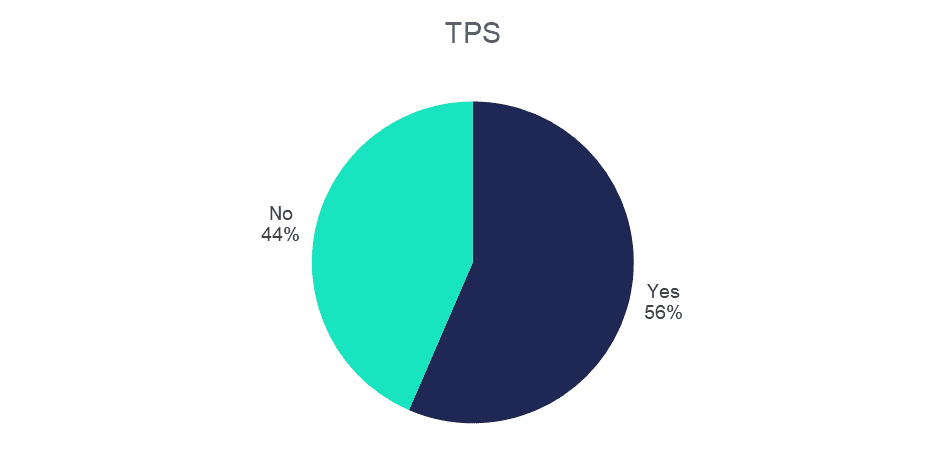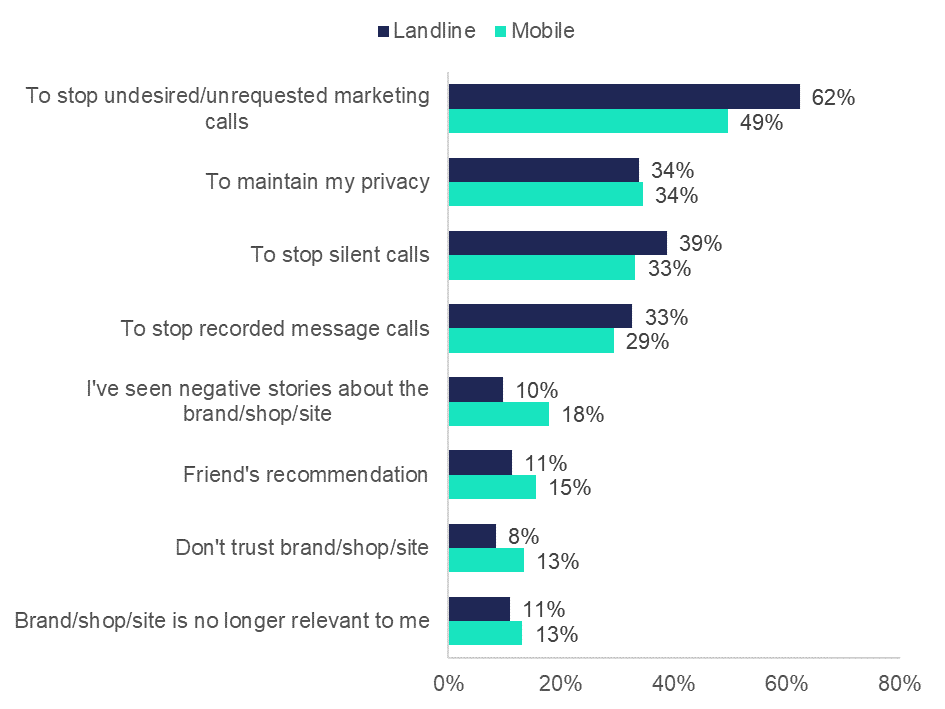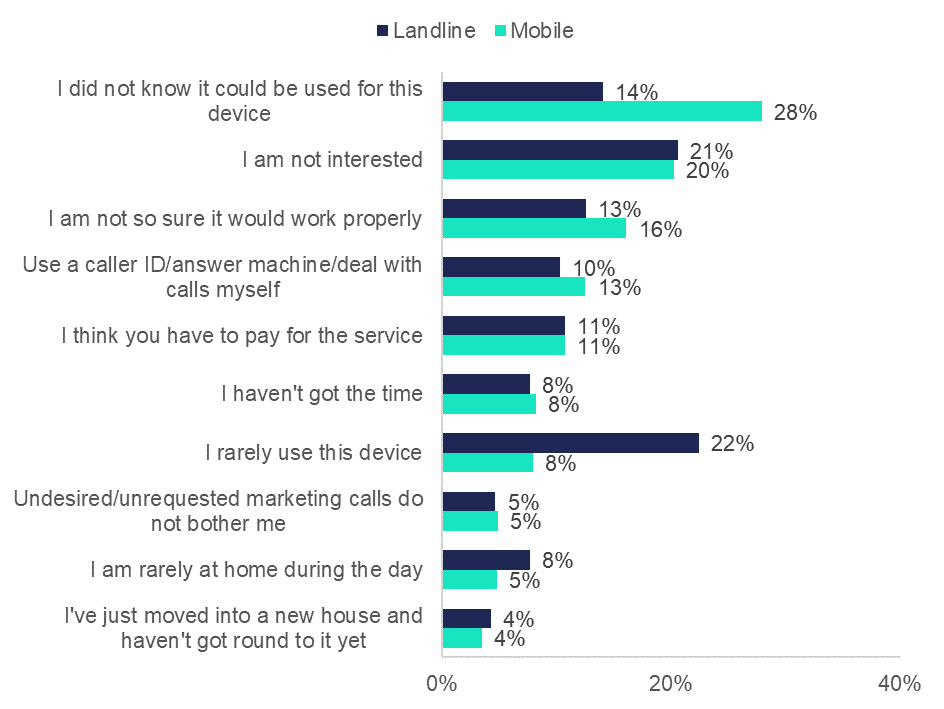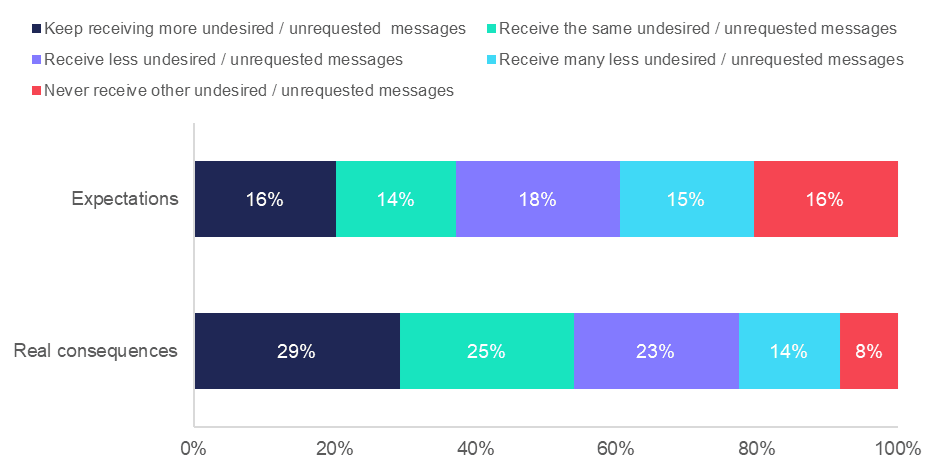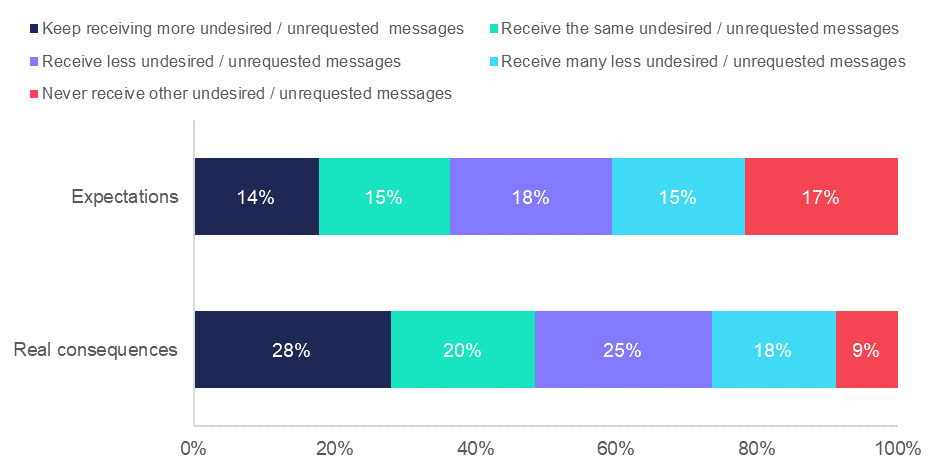
28th Mar 2022
TPS: What Consumers Say
Welcome to this short article series dedicated to the Telephone Preference Service (TPS).
The Telephone Preference Service (TPS) is the UK's only official "Do Not Call" register for landlines and mobile phone numbers. It allows people and businesses to opt out of unsolicited live sales and marketing calls.
It's free and quick to register a telephone number and doing so will reduce the number of unwanted sales and marketing calls consumers' receive. There is also a register for businesses, the Corporate Telephone Preference Service.
If a number is registered with the TPS (or CTPS), organisations are legally required - by the Privacy and Electronic (EC Directive) Regulations 2003 - to refrain from calling it. In the UK, the Information Commissioner's Office (ICO) enforces the law and has the power to fine firms that break it.
This article focuses on the findings of a survey conducted in July 2021 of over 2,000 nationally representative UK consumers - further details can be found in the "Methodology" section at the end of this article. We asked them about their awareness and knowledge of opt-out services and the TPS specifically to understand their direct experiences.
To appreciate the whole story, we also asked marketers about their knowledge and experiences - you can read the insights from this article here.
Telephone Preference Services - Awareness
The majority of consumers (59%) are aware that companies making sales and marketing telephone calls have a legal requirement not to call anyone who has registered that they do not wish to receive such calls. Such knowledge seems to be even stronger among consumers aged 55+ (64%).
A similar percentage of consumers are also aware of the TPS service specifically (56%) leaving a consistent group (44%) unaware of the existence of its services.
Before today, were you aware of these services? (Please select one)
Consumers learn about TPS services mostly from their friends and colleagues (21%) but also television (19%) and the internet (18%) are powerful sources of information.
Telephone Preference Services - Experience
Among those who are aware of the TPS service, 60% have also registered their landline and 40% their mobile number. It’s possible there isn’t enough information regarding the possibility to register a mobile phone given the 20% difference between the two.
The main reason people register their landline/mobile number is to stop undesired marketing calls (62% landline; 49% mobile), but also to maintain their privacy (34% for both) and stop silent calls (39% landline; 33% mobile). Interestingly, people are more motivated to register their mobile (18%) number than their landline (10%) when they see negative stories about the brand/shop.
Why did you decide to register your phone number with the Telephone Preference Service (TPS)? (Please select all that apply)
On the other hand, customers said the main reason for not registering their mobile number (28%) is because they weren’t aware of the service for that specific device – as hypothesised earlier. They also seem to be worried that the service wouldn’t work properly for mobile devices (16%).
The main reason for not registering their landline is due to the minimal use of their home telephone (22%) and because they are not interested in the service in general (21%).
Why have you chosen not to register with the Telephone Preference Service (TPS)? (Please select all that apply)
In terms of expectations after registering their mobile device, it’s concerning that consumers had bigger hopes regarding the service’s effectiveness that haven’t been met by the actual consequences. Indeed 16% of consumers said they expected to keep receiving more undesired marketing messages, with 29% reporting that they had felt they received more unwanted communications from brands/shops.
On the other hand, some consumers appear to slightly misunderstand what the TPS service can offer, with 16%) expecting to never receive undesired or unrequested contact from brands again.
After registering your mobile number for the TPS services, which of the following options do you expect to happen? (Please select one) and What did actually happen after you registered for the TPS services? (Please select one)
The data shows a similar situation for landlines, with 14% of consumers saying they had expected to keep receiving more undesired marketing messages. Then 28% believe they actually did receive more.
Similar to mobile, a group of customers (17%) was expecting to never receive this kind of communication via their landline.
After registering your landline for the TPS services, which of the following options do you expect to happen? (Please select one) and What did actually happen after you registered for the TPS services? (Please select one)
What’s in it for the customer?
To summarise, the benefits the TPS offers consumers that decide to register either their landline or mobile number are:
Free registration (no requirement to renew)
The chance to reduce undesired marketing messages
The opportunity to create more functional connections with brands and businesses
As mentioned in the introduction, we also asked marketers to share their perspectives and experiences with us – you can read the dedicated article here.
If this article has left you keen to learn more about the TPS and what it can offer to you and your business, visit the website.
Furthermore, the IDM has the perfect course to provide you with a great understanding of data protection, privacy and responsible marketing:
Responsible Marketing: Privacy, compliance and the law
Methodology
The research was conducted in July 2021 via an online survey of 2002 respondents (nationally representative of GB adults). The respondents were 49% male and 51% female living in East of England (9%), Greater London (13%), East Midlands (7%), West Midlands (9%), North East (4%), North West (11%), Northern Ireland (3%) and Scotland (8%).
Respondents were also equally distributed across the different age groups - 12% (18-24 y.o.), 18% (25-34 y.o.), 15% (35-44 y.o.), 17% (45-54 y.o.), 38% (55+ y.o.) and living areas - 23% urban, 42% suburban, 20% small town, 15% rural area
The data was collected by Census Wide then analysed by the DMA Insight team. The article was written and designed by the DMA Insight department. Unless referenced, all data included in this article is taken from this survey.
If you have any questions about the methodology used in the article, you can contact the DMA’s Insight team via email: research@dma.org.uk.
Related events and webinars
Related courses & qualifications
NOT A MEMBER YET?
Join today
700+ organisations. 27,000 marketers. One mission.
We’re uniting the marketing world with our innovative and inspiring customer-first approach. We provide resources, training, and support to empower marketers to ensure responsible data use, meaningful connections and sustainable success.
